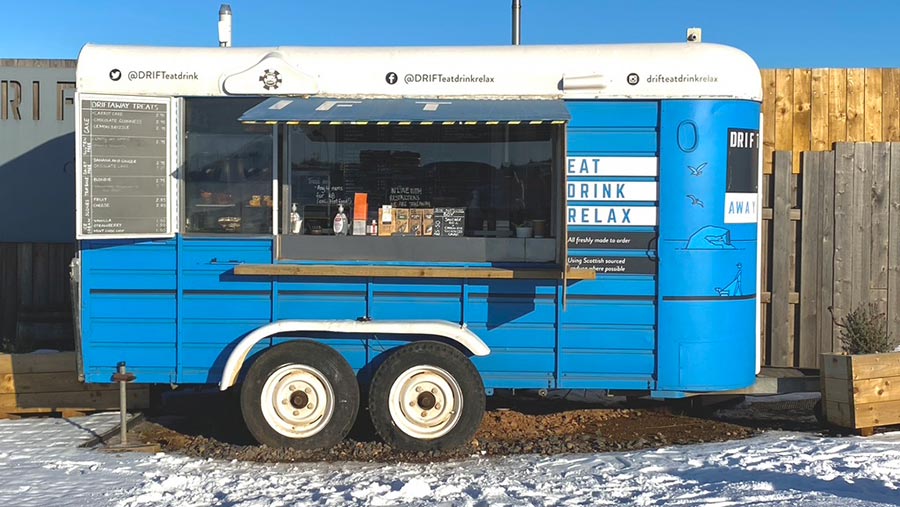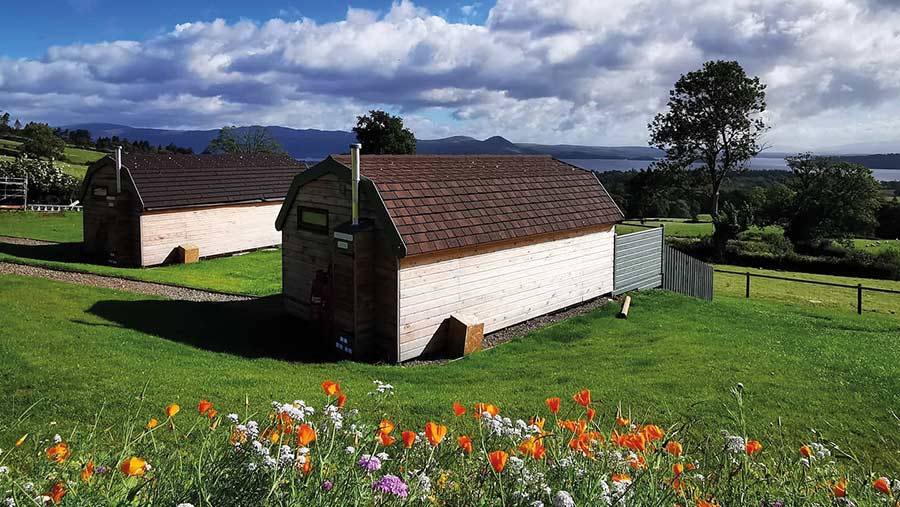Scottish agritourism set to benefit from staycation boom
Scottish farmers who diversified into agritourism are well placed to take advantage of a post-lockdown staycation boom.
Many diversified Scottish farm businesses have embraced the difficulties of the Covid lockdown and used the downtime to innovate and develop new services or products for the market, according to agritourism entrepreneur Caroline Millar, speaking in the week of the Royal Highland Showcase event.
“It has been emotionally difficult, but the businesses have used the time well with a view that when they reopen, they are ready to fly and to offer new facilities and products,” said Ms Millar, facilitator of the Scottish Enterprise Agritourism Monitor Farm programme and a beef, sheep and cereals farmer, based in Angus.
See also: How to go about diversifying into farm pop-up campsites
Despite the challenges of the past 12 months, the pandemic has not stopped businesses from innovating, investing in online systems and taking steps to improve professionalism in their offerings to visitors.
Knowledge sharing through the monitor farm project – now in its third year – and on a day-to day basis through the network of 200 different farms engaged with the programme, has enabled businesses to support each other and share ideas, Ms Millar said.
“It’s about sharing best practices and being open with each other,” she explained. “That means you don’t have to plan everything yourself for the first time.
“It might be something very minor, such as a recommended supplier, or how to set prices for a farm tour. You have a peer-to-peer support network.”
Jobs created
Some of the changes highlighted in the facilitation programme’s second annual report have included taking on additional staff to free up management to focus on the business, developing new food offerings, selling farm produce online, brand development and investment in new websites.
Jo McNicol, who runs clifftop cafe Drift with her husband Stuart at Castleton Farm, near North Berwick, East Lothian, said that, despite not being open “normally” for any days in the past year, they have managed to drive up total sales.

The converted horse trailer which sells takeaway food © Castleton Farm
She said the decision to convert a horse trailer into a takeaway unit had been a “saving grace” during lockdown. They reduced the brunch menu and started selling muffins and sausage rolls.
The McNicols have also taken on new staff, including chefs, bakers, and a part-time bookkeeper. They now employ almost 30 people, which has allowed them to manage the running of the business more effectively.
The new takeaway part of the business drove turnover up to £293,000. In addition, the business received a £50,000 Pivotal Enterprise Resilient Fund grant from the Scottish government, plus furlough support and Covid Leader funding of £41,000.
Plans are under way to take advantage of the 2021 staycation market by turning the car park into a camper van overnight stop from July. The McNicols are also investing in farm tours, investigating options to offer high-end eating experiences and build a £1m events space on the farm.
Support from the monitor farm group has “improved our confidence to take these steps forward”, said Mrs McNicol.
Brand creation
Bobby and Anne Lennox, from Shantron Farm, Luss, next to Loch Lomond, have launched a new brand for their farm accommodation and tours business – “Lennox of Lomond” – alongside a new online bookable website.
For their daughter, Kay Wilson, and her husband, Dougie, getting hold of building materials during Covid for their glamping pods at Shemore Farm, on the Luss Estate, has been a big challenge.
Mrs Wilson said this had “slowed progress”, but three luxury barns are now open and a fourth is in the pipeline.

The new Lennox of Lomond Bonnie Barns luxury accommodation © Lennox of Lomond
The glamping barns have been 97% booked up since they opened and are almost booked through to September. “The feedback has been incredible. We have had lots of locals here as well,” said Mrs Wilson.
Julia Latto, project manager for Scottish Enterprise, said farmers had transformed their agritourism businesses and created vital local jobs during the lockdown. She also praised their leadership skills, strategic direction and “exciting” plans for future growth.
